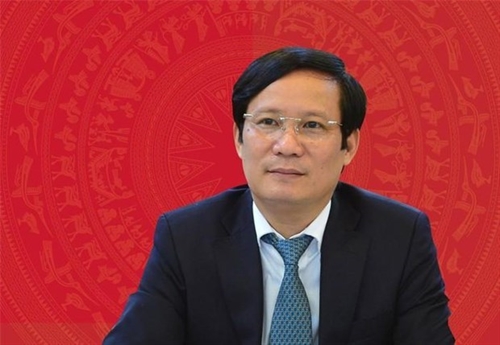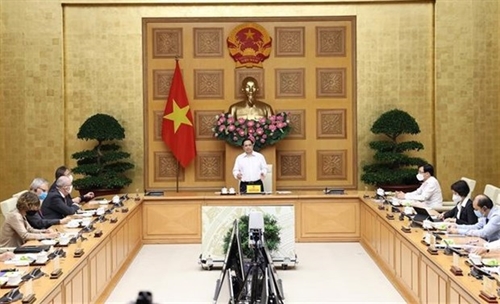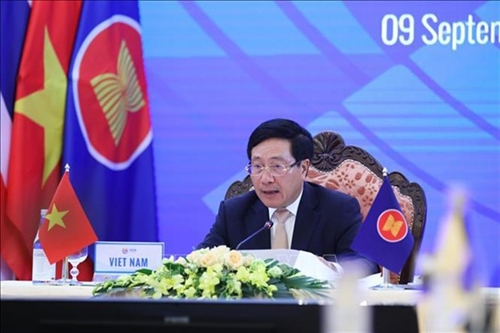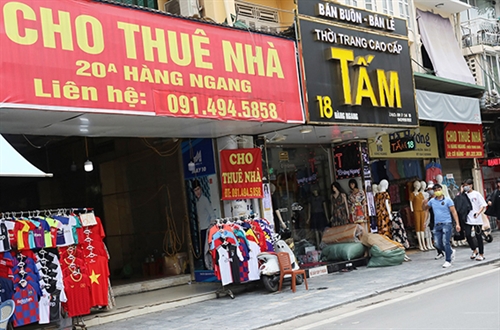The Government has recently issued a decree revising some articles of Decree 181 of 2013 detailing the Law on Advertising with a view to guaranteeing equality for both local and foreign advertising businesses.
Coming into force on September 15, the Decree, coded 70/2021/ND-CP, focuses on creating a new legal corridor for management of cross-border advertising services, especially cross-border advertisements on the platforms of multinational corporations such as Facebook, Google, and YouTube.
According to the Vietnam Digital Marketing Trends 2021, the first-ever report in the field of digital marketing in the country, the revenue from online advertising was USD 820 million last year and is expected to reach USD 955 million in 2021, in which cross-border platforms such as Google, Facebook, Netflix, and TikTok account for 82 percent of the market share.
New definitions
Article 13 of Decree 181 did not provide the definition of provision of cross-border advertising services and gave a very simple definition of a website providing cross-border advertising services of foreign entities.
To make it clearer, Decree 70 revises the Article, defining provision of cross-border advertising services as foreign organizations’ and individuals’ using websites to provide advertising services from device systems located outside Vietnam for users in Vietnam and earning revenues in the country.
Meanwhile, website providing cross-border advertising services is defined as an information system using one or more than one website in the forms of symbols, numbers, characters, images, sounds, and other forms of information with the purpose of providing network users with the services of storing, providing, using, searching, and exchanging information, or sharing images and sounds, creating forums, and online chatting to provide advertising services.
The new Decree requires domestic and foreign businesses engaged in cross-border advertising activities in Vietnam to abide by regulations on advertising, cyber security, as well as management, provision and use of Internet services and online information, and pay tax under the tax laws.
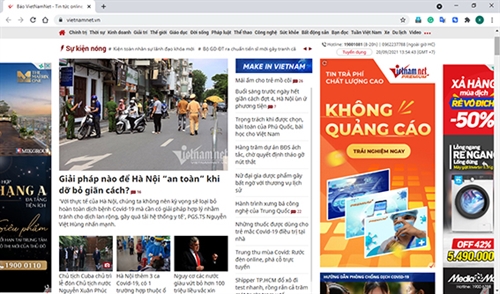 |
| Google Ads appear on an online newspaper__Photo: Internet |
Control over cross-border advertising services
Under Decree 181, online advertising was subject to management by the Ministry of Information and Communications (MIC) while cross-border advertising activities were placed under the Ministry of Culture, Sports and Tourism’s management. This has resulted in inconsistency and ineffectiveness of the formulation and implementation of policies on management of cross-border advertising services in recent years.
To deal with this, Decree 70 assigns the MIC to act as the focal point in managing foreign entities engaged in cross-border advertising service provision.
Accordingly, a foreign organization that provides cross-border advertising services in Vietnam must notify the MIC of its contact information, including its name, transaction name, address of its head office where the provision of advertising services is registered; locations of the main server system for providing services and the server system in Vietnam; and name, email address and phone number of its representative in Vietnam.
Such information must be delivered by hand or sent by post or electronic means to the MIC 15 days before foreign cross-border advertising service providers start their operations in Vietnam.
Infringements in cross-border advertisements to be handled within 24 hours
As specified in Decree 70, ministries, sectors and localities will be responsible for detecting and identifying cross-border advertisements that violate Vietnam’s law as assigned in regulations on handling of administrative violations in advertising activities, and notify them to the MIC for the latter to post them on its portal.
Providers of violating advertisements have 24 hours to address the issue, after that the MIC will take measures to block such ads if the former do not have any plausible reason for their failure to solve the matter within the prescribe time limit.
Worthy of note, law-breaking cross-border advertisements that threat to affect national security will be blocked until the service providers take measures to fix them as requested by the MIC.
Commenting on this, Le Quoc Vinh, Chairman-General Director of Le Invest (Holdings) Corporation, or Le Group, said the handling of infringing cross-border advertisements within 24 hours is challenging, due to a series of barriers related to information receipt, notification process, and technological infrastructures of both management authorities and service providers, not to mention time zone and language differences. Therefore, it is necessary to arrange a specific agreement regarding technical aspect between management agencies and cross-border platforms and their agents in Vietnam so as to facilitate the implementation, he stressed.
Requirements for cross-border advertising service providers
Under Decree 70, domestic and foreign providers of cross-border advertising services, when entering into contracts with advertising publishers and advertisers, must not commit the prohibitions listed in Article 8.1 of the Law on Cyber Security, e.g., inciting, bribing, deceiving, enticing, and training people against the State of the Socialist Republic of Vietnam; distorting history, denying revolutionary achievements, or sabotaging the national great unity bloc; providing false information causing public anxiety; encouraging prostitution, social evils, human trafficking; and inciting or inducing others to commit crimes.
They are also banned from committing acts of infringing upon copyright under Article 28 of the Law on Intellectual Property.
Additionally, these service providers are required to provide technical solutions for advertising publishers and advertisers in Vietnam to control advertising products and remove advertisements violating Vietnam’s law on service provision systems.
As appreciated by Vinh, this provision expresses the competent management agency’s efforts in control of advertising contents and removal of advertisements with harmful contents, and advertisements negatively affecting children, the country’s fine traditions and customs or national sovereignty on cross-border platforms. The addition of the provision on control of advertising contents is necessary as many platforms have no content filters for eliminating bad advertisements, especially those in the form of pop-up ads, he added.
In a talk with Quan Doi Nhan Dan (People’s Army) newspaper, lawyer Dang Van Cuong, head of the Chinh Phap Law Office and member of the Hanoi Bar Association, said Decree 70 would help facilitate the state management of cross-border advertising services while creating a healthy competition environment for both domestic and foreign enterprises to promote creativity and diversity in advertising activities and meet the demand of individuals, organizations and enterprises. “However, whether the tightened management of cross-border advertising activities will make the country less attractive to foreign enterprises as in fact multinational corporations such as Facebook, Google, and YouTube have left the markets due to strict control measures in some countries,” he noted.
Cuong pointed to the necessity to work out optimal option plans and solutions for removing problems and cumbersome administrative procedures for businesses, together with certain incentives, in order to attract and keep foreign investors in the country.
Lawyer Hong Bach from Hong Bach & Associates Law Company proposed that in the future, mutual legal assistance between countries should be enhanced through increasing exchanges and signing multilateral or bilateral cooperation documents to ensure more effective handling of violations.
Meanwhile, Nguyen Truong Son, Secretary General of the Vietnam Advertising Association, said that Decree 70 cannot fully cover necessary contents while the 2012 Law on Advertising has become no longer appropriate with the development of advertising activities in Vietnam and the world. “The MIC should coordinate with the Ministry of Culture, Sports and Tourism in proposing to the Government and National Assembly for revising the Law so that the advertising industry may fulfill all of its targets set in the Strategy for the development of cultural industries in Vietnam through 2020, with a vision toward 2030”, he proposed.-


